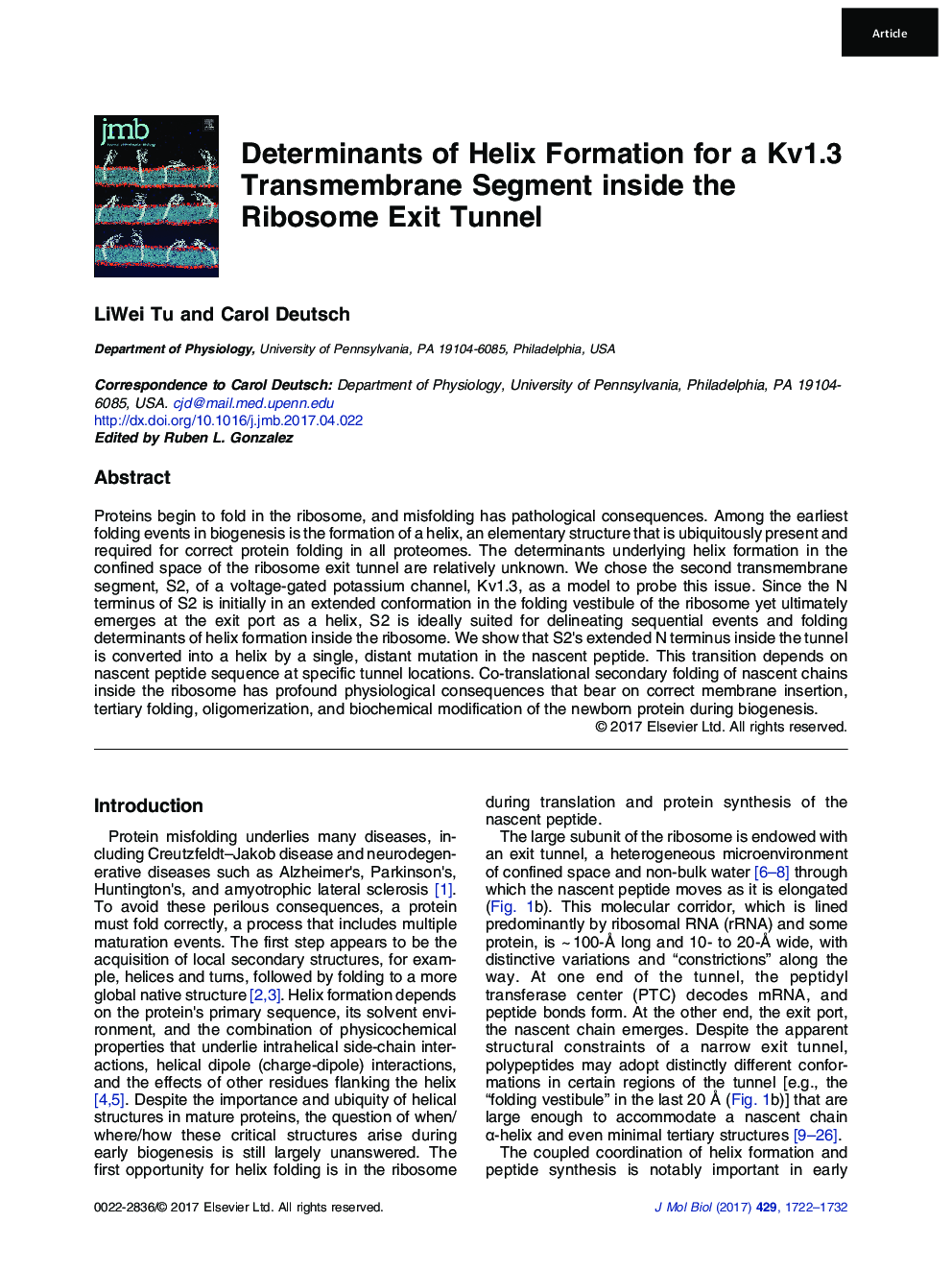| Article ID | Journal | Published Year | Pages | File Type |
|---|---|---|---|---|
| 5533223 | Journal of Molecular Biology | 2017 | 11 Pages |
â¢The N terminus of the transmembrane segment S2, initially an extended nascent peptide, can be induced to form a helix in the ribosome by a single remote S2 mutation.â¢The N terminus of S2 forms a helix before it completely exits the ribosome folding vestibule.â¢Helix formation involves interactions among the mid-region of the S2 helical sequence, its N terminus, and the tunnel at specific locations.â¢A Trp-Phe residue pair in the mid-region of the S2 helical sequence functions in a repressor-like mode to govern helix formation.
Proteins begin to fold in the ribosome, and misfolding has pathological consequences. Among the earliest folding events in biogenesis is the formation of a helix, an elementary structure that is ubiquitously present and required for correct protein folding in all proteomes. The determinants underlying helix formation in the confined space of the ribosome exit tunnel are relatively unknown. We chose the second transmembrane segment, S2, of a voltage-gated potassium channel, Kv1.3, as a model to probe this issue. Since the N terminus of S2 is initially in an extended conformation in the folding vestibule of the ribosome yet ultimately emerges at the exit port as a helix, S2 is ideally suited for delineating sequential events and folding determinants of helix formation inside the ribosome. We show that S2's extended N terminus inside the tunnel is converted into a helix by a single, distant mutation in the nascent peptide. This transition depends on nascent peptide sequence at specific tunnel locations. Co-translational secondary folding of nascent chains inside the ribosome has profound physiological consequences that bear on correct membrane insertion, tertiary folding, oligomerization, and biochemical modification of the newborn protein during biogenesis.
Graphical AbstractDownload high-res image (121KB)Download full-size image
